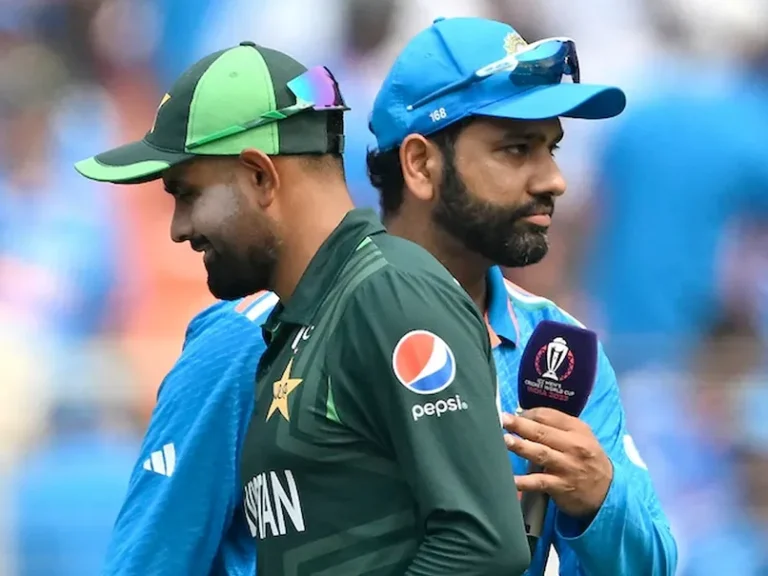Arundhati Reddy reprimanded for send-off
Arundhati Reddy reprimanded
Arundhati Reddy reprimanded: Arundhati Reddy, an Indian cricketer, was recently reprimanded for an inappropriate send-off during a match. Such incidents usually occur when a player shows excessive or aggressive celebration after dismissing an opponent, which can be seen as unsportsmanlike behavior. In this case, Reddy was given a formal reprimand under the ICC Code of Conduct, which monitors players’ behavior to ensure the game remains respectful and fair.
Send-offs, especially when directed at a departing batter, are closely watched by match officials. The ICC enforces disciplinary actions like reprimands, fines, or even suspensions depending on the severity of the incident. While the specifics of Reddy’s actions may not be detailed, a reprimand indicates a relatively mild offense, signaling that her actions were inappropriate but not severe enough for a harsher punishment.
This serves as a reminder to all players about maintaining the spirit of cricket and avoiding actions that could lead to unnecessary conflict or poor sportsmanship on the field.
Most Recent News about Arundhati Reddy reprimanded
Arundhati Reddy was recently reprimanded for an aggressive send-off directed at Nida Dar during a match between India and Pakistan in the Women’s T20 World Cup 2024. This incident occurred in the final over of Pakistan’s innings, after Reddy dismissed Dar. Her actions were deemed to violate the ICC Code of Conduct, specifically Article 2.5, which addresses gestures that could provoke an aggressive reaction from a player after their dismissal.
ICC Code of Conduct Arundhati Reddy reprimanded
The ICC Code of Conduct is a set of rules and guidelines established by the International Cricket Council (ICC) to ensure fair play, integrity, and sportsmanship in the game of cricket. It outlines acceptable behavior for players, officials, and team members during matches and governs disciplinary measures for violations. The Code of Conduct covers all formats of cricket—Tests, One-Day Internationals (ODIs), and T20 Internationals (T20Is).
Key Components of the ICC Code of Conduct:
1. Levels of Offenses:
The Code categorizes offenses into four levels based on the severity of the misconduct:
- Level 1: Minor breaches, such as dissent against an umpire’s decision, excessive appeal, or minor inappropriate physical contact. These offenses usually result in a warning or a small fine.
- Level 2: More serious offenses, like showing serious dissent, throwing the ball at or near a player in an inappropriate manner, or deliberate and inappropriate physical contact. Penalties include fines and match bans.
- Level 3: Severe offenses like intimidating an umpire, threatening a player, or using discriminatory or offensive language. These can result in significant fines and longer suspensions.
- Level 4: The most serious breaches, including physical assault on a player or match official, or any act that seriously damages the spirit of the game. Level 4 offenses can lead to long-term suspensions or bans from cricket.
2. Examples of Misconduct:
- Dissent at Umpire’s Decision: Expressing disagreement with an umpire’s decision through gestures or words.
- Inappropriate Send-Offs: Directing hostile or aggressive behavior towards a departing batter.
- Excessive Appealing: Repeated appeals intended to pressure the umpire.
- Verbal Abuse or Sledging: Offensive or abusive language aimed at opposing players.
- Ball Tampering: Altering the condition of the ball illegally.
- Discriminatory Behavior: Racist, sexist, or other forms of discriminatory language or actions.
3. Spirit of the Game:
The ICC Code of Conduct emphasizes the importance of upholding the spirit of the game. It includes respecting opponents, officials, and the rules. Players and teams are expected to play in a manner that promotes sportsmanship and respect for the opposition.
4. Sanctions:
- Fines: Monetary penalties are common for minor breaches.
- Suspensions: Players can be banned for one or more matches, depending on the severity of the offense.
- Demerit Points: Players accumulate demerit points for violations. If a player accrues a certain number of points within a set period (usually two years), they face suspension. Arundhati Reddy reprimanded
5. Match Referee and Umpire Role:
The on-field umpires and match referees are responsible for reporting breaches of the Code of Conduct. They have the authority to decide penalties based on the level of the offense. In more severe cases, the matter may be referred to a judicial commissioner or an ICC disciplinary committee.
Recent Example:
In the case of Arundhati Reddy, she received a reprimand, which indicates a Level 1 or minor Level 2 offense, likely due to an unsporting send-off. This type of offense generally involves a violation of the spirit of the game, particularly showing disrespect towards an opposing player. Arundhati Reddy reprimanded
You Can Read Also: Breaking News: weekend of Premier League action 2024
Conclusion:
Arundhati Reddy reprimanded The ICC Code of Conduct is essential for maintaining fairness, discipline, and respect in cricket. It promotes responsible behavior from players, and violations are addressed promptly with appropriate penalties, ensuring that cricket remains a gentleman’s game.







